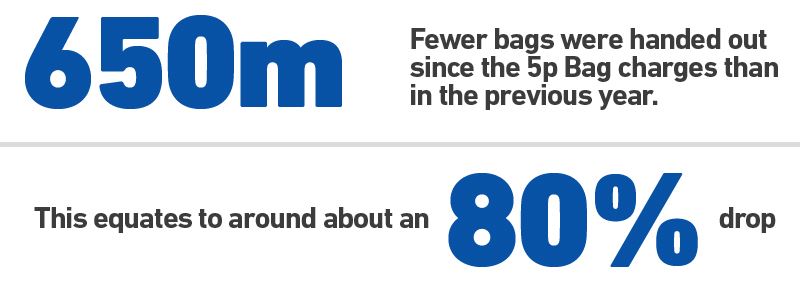Plastic bags have been public enemy number one as of late. They hit the news last week as England braced itself for the long-discussed 5p plastic bag levy.
What’s important to know is that England was actually the last of the UK countries to introduce this charge, and even then it was less heavily enforced than our neighbours.
Scotland brought in the 5p plastic bag charge just over a year ago. Legislation was passed by Scottish Parliament on the 20th of October, 2014. It requires all retailers of food and non-food to charge a minimum of 5p for each single-use carrier bag. The difference being that in the UK, this was only applicable to retailers with 250 employees or more.
One year on, what do the figures say?
Figures released by the Scottish Government exactly a year after the charges were brought in reveal some staggering statistics.
- Carrier bag usage in Scotland has dropped by at least 650 million
- This equates to around an 80% drop in usage
- The charges raised roughly £6.7 million for ‘good causes’ over the 12 month period.
Morrisons, the Cooperative, Waitrose and Boots all disclosed their figures and revealed that they have each seen a drop of around 80% over the year. ASDA announced that they had cut carrier bag usage by 90%, and Sainsbury’s announced an impressive 100% drop.
This is more than just good news for Scottish supermarkets, it’s also a good shift towards a healthier economy, and positive environmental impacts. The changes, and 650m less plastic bags being given out, led to an annual net saving of around 4,000 tonnes of plastic and other materials. It also cut down on CO2 usage by as much as 2,500 tonnes.
Scotland’s Environment Secretary, Richard Lochhead called the carrier bag charges a “Huge success”.
He also commented: “Previously, statistics showed that people in Scotland used more than 800 million new single-use carrier bags every single year – more per head than anywhere else in the UK.
“It’s now becoming second nature to shoppers to reuse their carrier bags and hopefully to think more about our impact on the environment.”
Back

